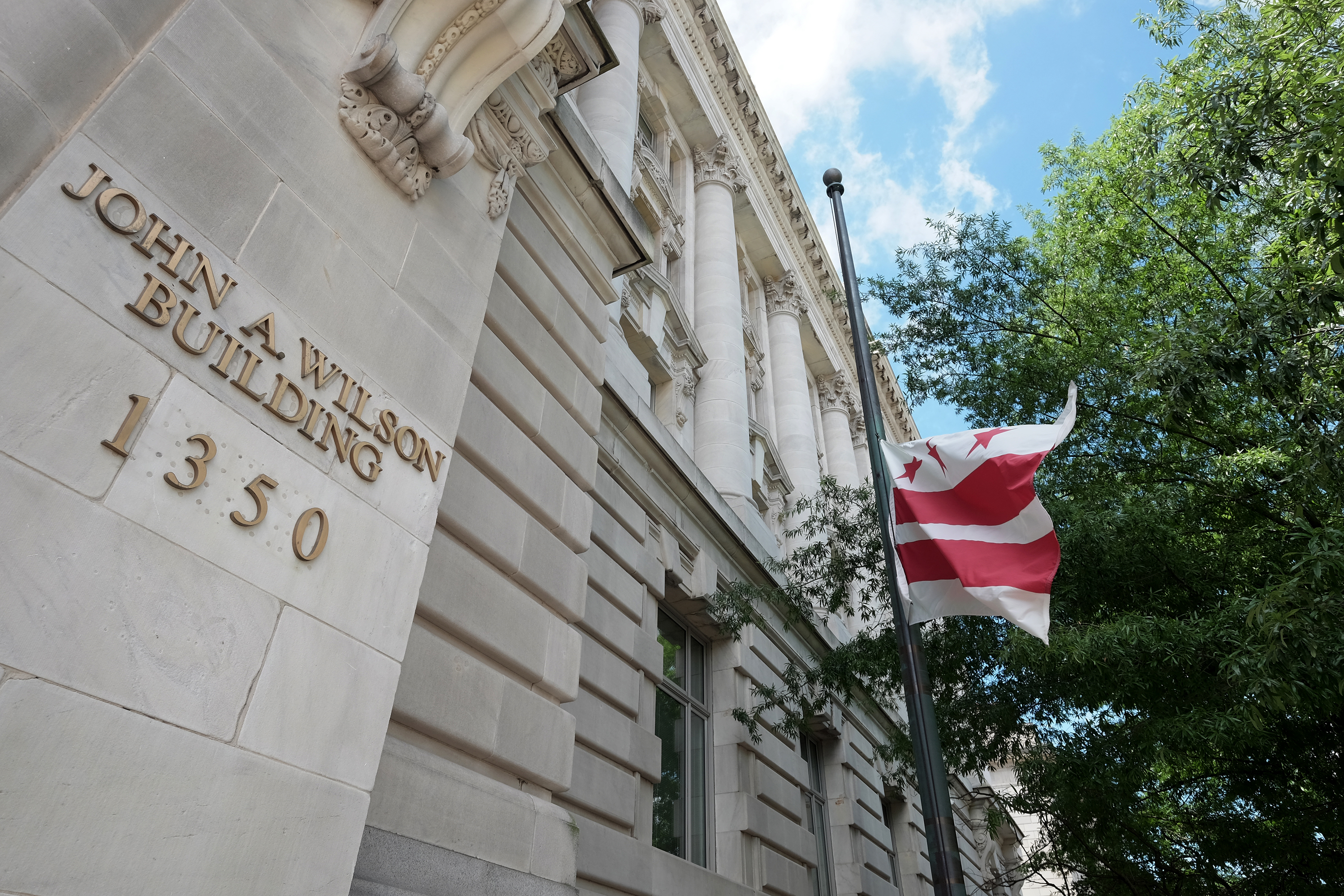Maryland Gov. Wes Moore and members of the state's congressional delegation renewed their pitch to build a new FBI headquarters in Maryland on Wednesday, criticizing the selection process for lacking transparency — and noting it would cost taxpayers at least $1 billion more to build in Virginia, and take longer.
Moore and Maryland lawmakers focused on an abrupt change in criteria in September 2022 that put extra weight on putting the headquarters near the FBI Academy in Quantico, Virginia, even though consideration of a new headquarters has been going on for over a decade.
“We started out believing that there was going to be one set of rules — that the 100-yard dash was going to be the 100-yard dash — and then, when we start to run in the game, all of a sudden it’s a 200-yard dash, and then in September of last year, somebody put their finger on the scale and changed the rules," Rep. Kweisi Mfume, a Democrat, said after a meeting with representatives of the GSA and FBI in Washington, D.C.
Democratic Rep. Steny Hoyer, who noted he has been involved in the consideration of building a new headquarters since 2009, said the emphasis on building it near Quantico was “not transparent, because we learned that at the very last minute.”
We've got the news you need to know to start your day. Sign up for the First & 4Most morning newsletter — delivered to your inbox daily. Sign up here.
“This was a productive meeting in this sense: GSA assured us — and the FBI assured us — they would go back to the table based upon the information that we had all given them and reassess the correctness of this process,” Hoyer said.
Moore, who is Maryland’s first Black governor, stressed how locating the headquarters in Prince George’s County, which is a majority-Black jurisdiction in the Maryland suburbs of the nation’s capital, would satisfy equity goals that President Joe Biden has raised.
“It’s the right choice in terms of timeline and cost,” Moore said. “It’s the right choice in terms of transportation. It’s the right choice on advancing the FBI’s mission, and it’s the right choice on equity.”
Local
Washington, D.C., Maryland and Virginia local news, events and information
Rep. Glenn Ivey, a Democrat whose district includes a significant portion of Prince George’s, said lawmakers made it clear during the meeting “that we can kill two birds with one stone with this.”
“We can strike a blow against federal redlining in Prince George’s County, and at the same time save taxpayers over $1 billion, maybe $1.5 billion,” Ivey said.
Weighted highest among the criteria, at 35%, is serving the FBI mission — which includes proximity to the FBI's academy and to the Justice Department in Washington, D.C. Transportation access is weighted at 25%. Development flexibility is weighted at 15%. Promoting racial equity and sustainable siting is weighted at 15%, and the cost to acquire and prepare the site is weighted as 10%.
Lawmakers, speaking from a podium with a sign that read “Build the Bureau in Maryland,” scoffed that cost was weighted so low.
“That will not fly, and we made that clear and we’re very pleased that GSA and the FBI will be taking our views into consideration as they reevaluate this," Sen. Chris Van Hollen, a Democrat, said.
Plans to replace the FBI’s J. Edgar Hoover Building in Washington, D.C., built in 1974, have been under discussion for 15 years. Momentum to pick a new site stalled during the Trump presidency, when plans to move the headquarters to the suburbs were scrapped in favor of a proposal to rebuild at the existing site.
The GSA has named three finalist sites: Springfield, Virginia; Greenbelt, Maryland; and Landover, Maryland. Budget documents estimate that roughly 7,500 jobs are tied to the new facility.
Last month, Virginia’s political leaders argued the federal government would be wise to follow in the steps of Amazon and other big companies that have come to Virginia in recent years.
Maryland Sen. Ben Cardin said the consultation with GSA on Wednesday was required in legislation after lawmakers saw the September selection plan “as not being one that you could defend.”
“It questioned the integrity of the process, and that’s why GSA was asked to have these consultations and to look at changes in the selection plan criteria and weighting issues," Cardin, a Democrat, said.



